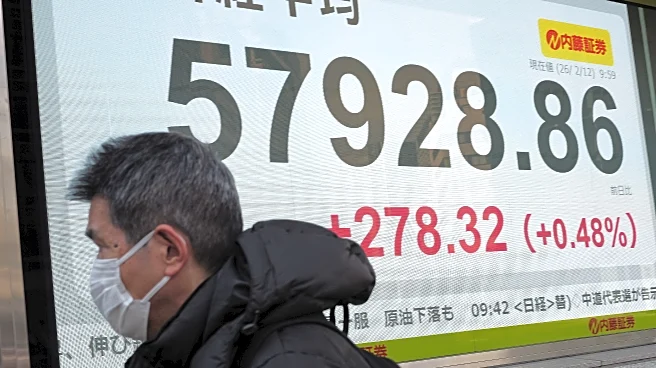What's Happening?
President Trump has announced a 100% tariff on pharmaceutical imports, which is set to begin on October 1. This decision has created uncertainty for North Carolina's pharmaceutical industry, the state's largest traded sector. The tariffs apply only to name-brand pharmaceuticals, not generics. Large manufacturers like Eli Lilly and GSK have been preparing for this impact by investing in U.S. manufacturing plants. However, smaller manufacturers, which rely heavily on overseas contract manufacturers, may face greater challenges. North Carolina's pharmaceutical exports have been the state's top export since 2020, and imports have surged in anticipation of the tariffs. Year-to-date through July, imports have nearly exceeded the total for all of 2024, with a significant increase in early 2025.
Why It's Important?
The proposed tariffs could have serious economic consequences for North Carolina, where pharmaceuticals are both the most significant import and leading export. The Research Triangle's concentration of drug manufacturers, suppliers, and research firms means any disruption could have a pronounced impact on the state's economy. The tariffs may lead to increased costs for manufacturers, potentially affecting drug prices and availability. Large companies may mitigate the impact through domestic investments, but smaller firms could struggle, affecting their competitiveness and market presence.
What's Next?
Companies are awaiting a final decision on the implementation of the tariffs. If enacted, manufacturers may need to adjust their supply chains and production strategies. The industry could see shifts in investment patterns, with potential increases in domestic manufacturing. Stakeholders, including political leaders and industry groups, may engage in discussions to address the potential impacts and explore alternatives to mitigate economic disruptions.
Beyond the Headlines
The tariffs raise ethical and legal questions about trade policies and their impact on healthcare access. The focus on name-brand drugs could lead to debates on patent laws and the balance between innovation and affordability. Long-term shifts in trade relations and manufacturing practices may emerge, influencing global pharmaceutical markets and U.S. healthcare policy.












